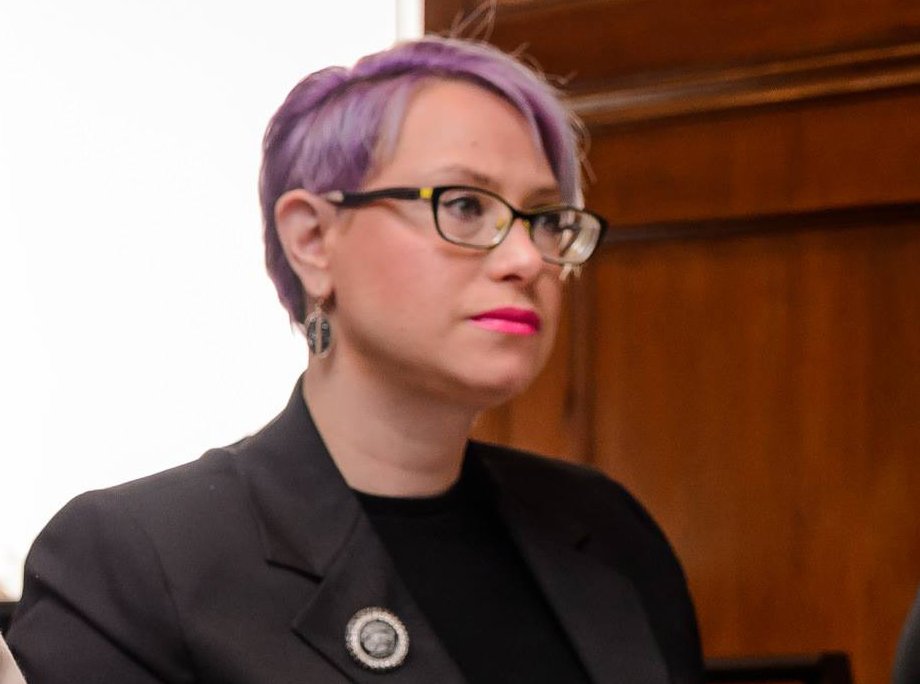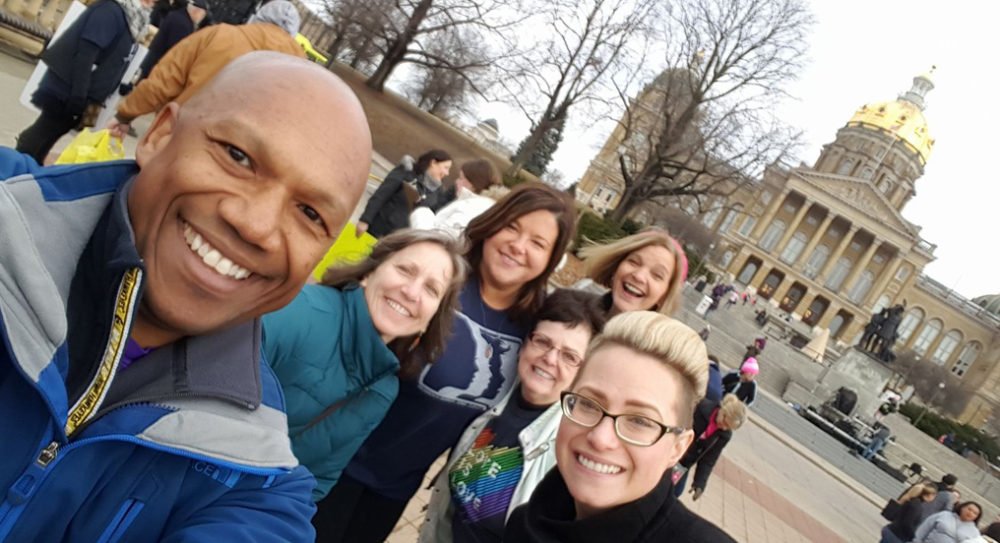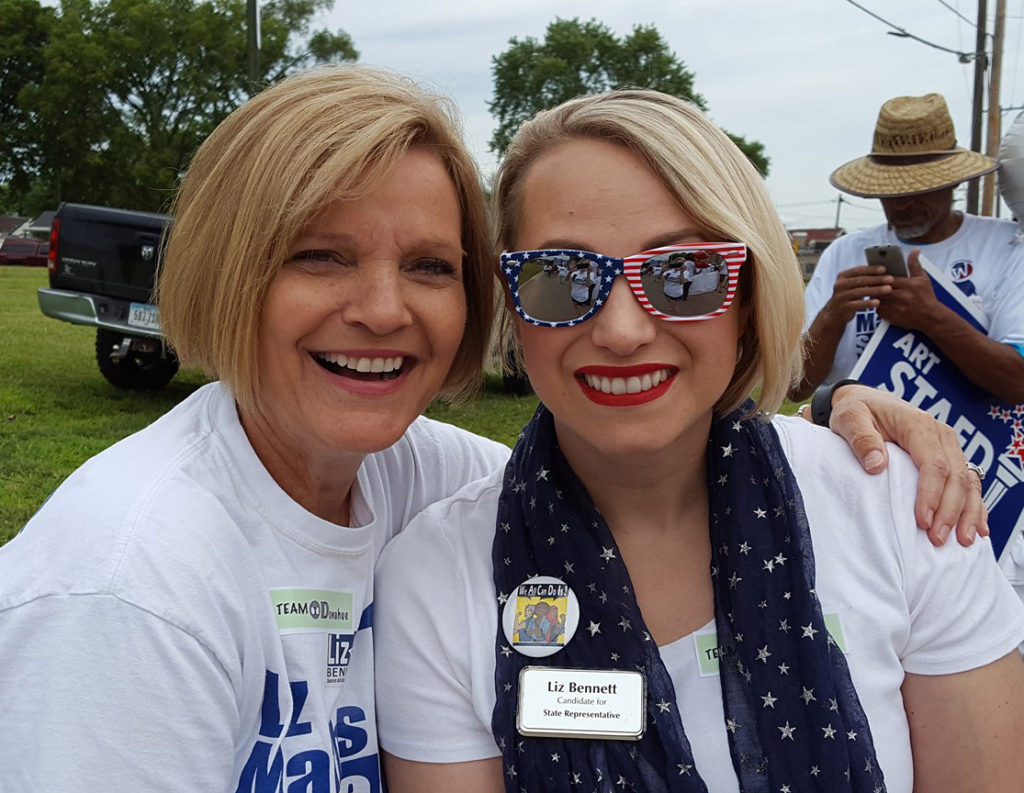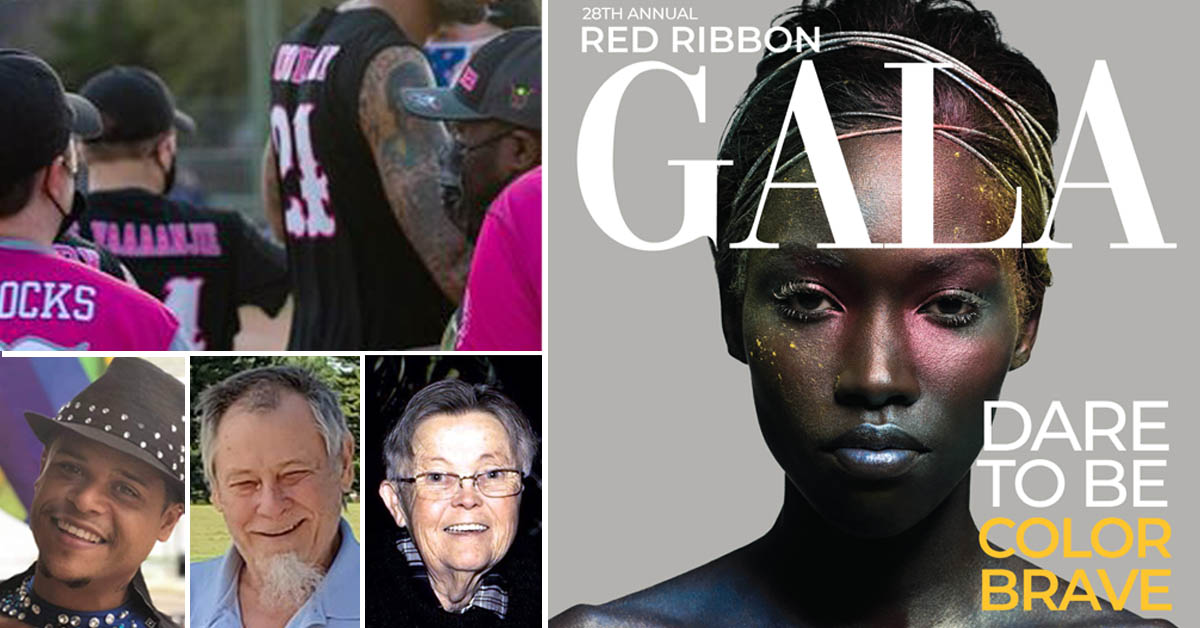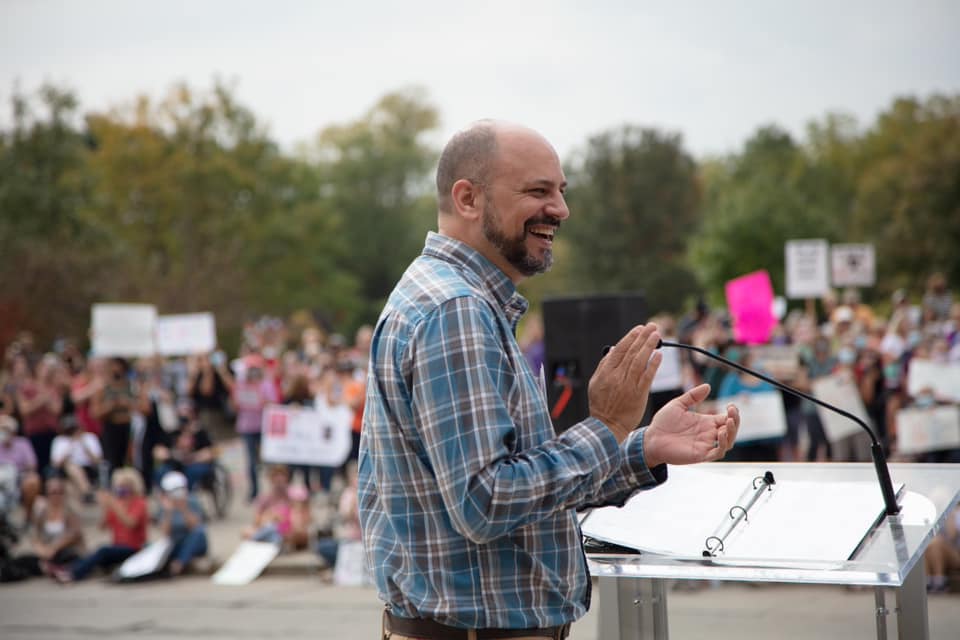The national political scene is all abuzz over Arizona’s Kyrsten Sinema and her boldly femme presentation of open bisexuality at her swearing-in ceremony while touting boldly progressive policies.
Turns out Iowa has its own “Sinema,” a female politician almost more bold than Arizona’s Democratic upset victor. Rep. Liz Bennett, D-Cedar Rapids, has for years sported bold styles with meaning, offered an openness about her lifestyle, and pressed even her fellow Democrats to do better for marginalized people.
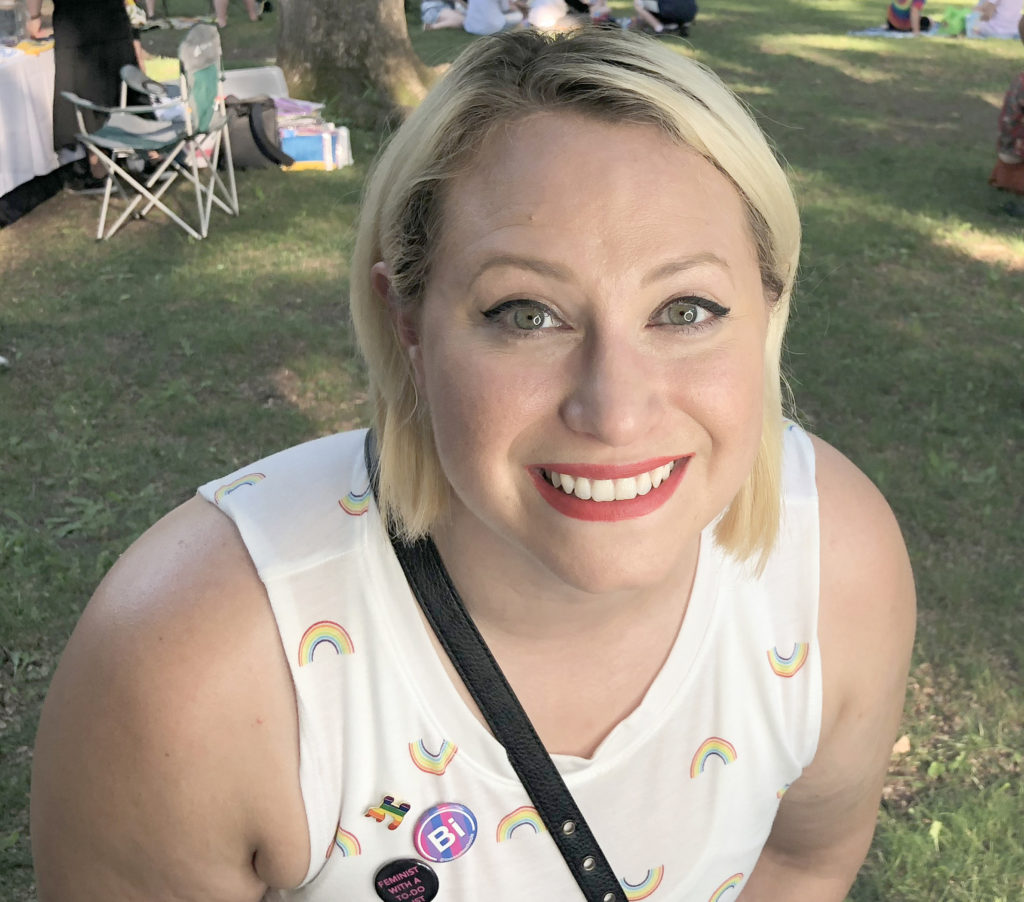
Bennett, who first met Sinema almost 10 years ago, is her Midwestern parallel in many ways: Sinema’s bold swearing-in outfit is comparable to, say Bennett’s occasional choice of a vintage dress with giant polka dots.
Sinema makes statements with ‘50s-era platinum-blonde curls and pink eyeglasses; Bennett’s conversation-starter hair can involve diverse colors like lavender, lilac, opal, “pearlescent,” and undercuts or side-shaves.
And while Sinema pushes for better solutions to long-time problems and seeks to even out over-representation by Republicans in her state, so does Bennett.
“I have just been really emotional watching Kyrsten Sinema, and all the new faces we have this year in Congress,” Bennett says. “I know how important each of those faces are to so many people out there who have felt unrepresented in many ways.”
The topics of fashion, women and politics in one conversation can draw offense under the wrong circumstances, or with one mis-step of a poorly chosen word. It’s a fine line between discussing the fashion statements of female leaders in a way that balances gender equity and acceptance of all gender identities – and lapsing into “isms” like the ageism that started to seep into commentary on Hillary Clinton’s pantsuits and “cankles.
When you hear Bennett share what she’s endured because of her fashion choices, you start to realize: how women present themselves IS still an important statement, largely because we’ve been boxed in for so many years by certain sexist expectations.
One Republican legislator actually walked up to her in the House chambers and told her how much more attractive she was with longer hair. Even a Democrat wrote to her privately to tell her she was “embarrassing the party” during one particular hair phase.
“People would send me private messages, or some people just talked to other people,” she recalled. “One person urged another person to tell me that I was basically ruining my life and no one was listening to me. Another person told me I was wasting my political capital and wouldn’t have any left for more important things.”
Bennett chose to stick with her own then-radical fashion choices, and look where we are now: lilac-colored hair is one of Harper’s Bazaar’s top hair fashion trends of 2019, and Bennett just won her third election.
“The decision for me was, conforming to an image that felt stifling to me was an impediment to doing my best work. I had to choose between ‘stop doing politics,’ or start doing it in a way that was authentic to me. I chose the latter path because I still felt I had really important work to do.”
Like Sinema, Bennett is an openly bisexual woman. She participates regularly in LGBTQ-affiliated events, including annual Pride festivals and parades, and the local LGBTQ softball league. She even won a drag competition fundraiser for One Iowa.
Like Sinema, Bennett has to deal with often inappropriate focus on her personal life, and often veiled biphobia. As with judgments of her appearance, Bennett said, attacks on her sexuality are usually leveled in whispers or passed along third-hand rather than expressed directly.
On the flip side, openly identifying as bisexual can lead to an inappropriate form of directness, Bennett said, such as undue focus on the gender of her significant other. Sinema silenced the question by taking her swearing-in oath alone where most candidates had a spouse or partner. It may have been easier to avert the question because many were caught up in the law book on which she took the oath (instead of a Bible), her outfit, and the strong, confident body language she used while standing next to Vice President Mike Pence, a longtime self-righteious enemy of LGBTQ rights.
Bennett says the next key frontier is for more “gender-queer” candidates to be represented in politics. She heralds progress for newly-elected transgender candidates like Danica Roem of Virginia.
But to this day, she notes, there are no nonbinary politicians – or even politicians that openly flout gender norms to the degree of, say, Johnny Weir or Katherine Moennig. While Bennett keeps doing her part to “represent,” she’s grateful to be part of the pollical change that’s already happened since her election in 2014.
“The public is hungry for authenticity, and that can look a lot of different ways,” she says. “so that certainly does open some doors for someone like me. The more important thing to me is to leave the world better than I found it. That will be what guides my future decisions.”
BILLS REP. LIZ BENNETT IS PROPOSING THIS SESSION WOULD
- prevent employers from discriminating against employees based on reproductive health practices.
- require insurances companies to cover 12 month oral contraceptive, or 3 months of contraceptive ring or patch supply at time of pick-up.
- prevent employers from discriminating specifically against employees who perform quota-based work. For example, it would prevent employers from blaming terminations of breast-feeding employees on “unmet expectations” in positions where existing state accommodations for expressing milk end up leaving breast-feeding employees with fewer hours in which to meet quotas. This bill would be especially beneficial to women who are economically disadvantaged.
- make it easier for people who move to the state to transfer their handicapped parking permits
- strengthen victims’ rights regarding rape kit testing
- require affirmative consent education in human growth and development classes
- include LGBTQIA+ health information in human growth and development (sex ed) classes
- ban conversion therapy
- ban the trans-panic defense
- ban law enforcement officials from engaging in sexual activity with persons under their authority.
This article originally appeared in the Iowa City Press-Citizen and is reprinted with permission.

